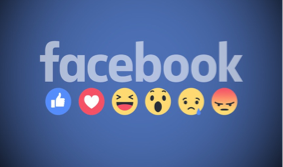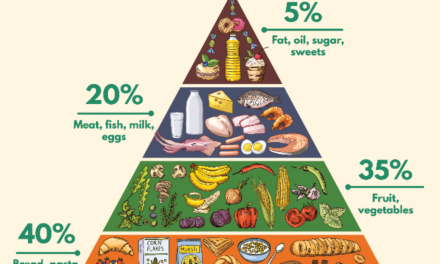Natalie Martini ’21, Managing Editor

Are you sick of the onslaught of political posts in social media, recently? You’re not the only one. As most people would agree, the year 2020 was one of the most exhausting we have seen in a while. However, after breaking news revolved around intense and horrifying headlines such as the Capitol building being stormed into, and perpetuating debate ensued on the new presidency and updated COVID-19 restrictions, it already feels like this year deserves a break.
I do not intend to paint this year as a catastrophe like last year. I do feel we are headed in a better direction, especially with the vaccine for COVID-19 out now, and being distributed to as many people as possible, who are eligible for it. However, we are not totally out of the woods from last year, and many would argue we will not be for a while. One way that I continue to be reminded of this is social media, particularly Facebook. While some social media can be useful in keeping up with current events and creating discussions about them, more often than not it seems stifling and unproductive. Not only are some posts hardly ever backed by credible sources, but the people discussing these issues often go in circles with their arguments. Overall, it is a difficult place to hold a reasonable conversation.
I have never contributed to any kind of discussion myself on any of these platforms, as I feel it is useless. I have no problem with other people stating their opinions publicly, but I feel it is inevitable that someone will stumble upon the post and make it their goal to change that person’s mind, unable to just let their differences be. Some people really enjoy debating with others online, and find it to be a fulfilling experience to exchange ideas, even if they hold opposing viewpoints. However, it is sometimes difficult to find people who maintain a civilized dialogue, without letting the power of hiding behind a screen get to their heads.
Lately, it seems that political discussions ensue no matter what the original post was, as if some people are just looking for an argument. This is not surprising, considering that there are so many pent up feelings from this past year that some individuals choose to purge them through social media. More often than not, I’ll notice that when someone posts a meme there is a long thread of comments beneath it, arguing about the message behind the image, and making accusations toward the person who made the post. I’ve seen this with simple topics such as business standards during COVID-19 or mask wearing.
After the Inauguration, some people immediately got to work in posting about Biden’s First 100 Days as President of the United States, both in criticism and in support. One of the bigger topics more recently is the impeachment trials of President Trump, and in reference to the rioting at the Capital in January 2021. This event even sparked conversation about the rioting and peaceful protests that took place earlier in 2020, and the comparison of law enforcement’s reaction to each situation. While this is an example of how conversation can benefit individuals on important issues, Facebook is a difficult place to hold a mass debate. People should be free to state their viewpoint on social media, but when it comes to the discussion of sensitive topics, it is often better to divert one’s attention to a news source rather than fall down a rabbit hole of a Facebook comment thread.

Facebook used to act as a platform mainly for connecting with others and sharing personal posts to keep up with friends and family. When I look at it today, it is littered with memes, political references, and links to current news stories with questionable credibility. Part of the reason I deleted my Facebook back in Spring 2020 was because of the onslaught of posts about COVID-19, where many people made jokes about the negative state of the world because they could not find any other way to cope with it. Not that there was anything wrong with this, but it was stressful to be reminded of the uncertain time we were stuck in. I know others that ceased to use the platform around this same time as well, as they felt it had just become a place for people to circulate information that may or may not be accurate or helpful.
This is not to say that social media platforms like Facebook should not be used to share memes and spread humor, even in trying times. In fact, one could argue that it breaks the tension about more serious current events, opening a door for people to join the conversation and learn more about it. It is also beneficial for people to express their viewpoints in some of these posts as it creates a way for users to identify with one another.
The reason that scrolling through Facebook can feel so stressful now is because some of the arguments taking place there emphasize the division taking place within our country, currently. With all the unfortunate events to have occurred this past year, and for them to spill into the new year in such dramatic ways, it certainly feels like we cannot catch a break as a society. Although we cannot take a break from the world around us, we can take a break from the virtual rantings that feed into a figurative war, and fail to contribute to a productive discussion on current events.






